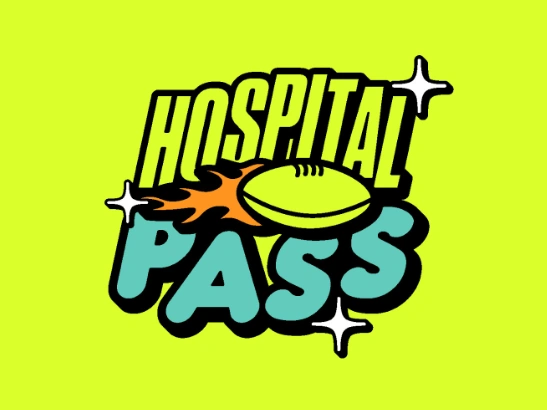What's the Tactic?
Sports betting agencies aggressively push real-time, or "in-play," betting opportunities during live games. This sophisticated tactic is designed to make bettors impulsive, exploiting the rapidly changing dynamics and emotional highs and lows of a live sporting event. You'll see this with urgent notifications flashing on your screen, pressuring you with messages like "Bet Before the Final Whistle!" or "Your team just equalised! Bet now on the final score!" These prompts aim to trigger a powerful Fear of Missing Out (FOMO) and capitalise on the emotional intensity of dramatic moments, leading to rushed, often ill-considered bets.
Why It Works?
Real-time betting is a powerful magnet for several psychological reasons, bypassing rational thought in favour of instinct and emotion:
- Emotional Arousal and Impulsivity: Live sporting events are inherently exciting and emotionally charged. When platforms push real-time bets during peak moments – a comeback, a sudden goal, a controversial call – they amplify this emotional arousal. This heightened emotional state directly impairs rational decision-making, making bettors more likely to act on impulse rather than logic. There simply isn't time to think the bet through, leading to less informed decisions.
- Fear of Missing Out (FOMO): Urgent, time-sensitive notifications (e.g., "Odds changing!", "Bet now!") create intense FOMO. Bettors fear missing out on a potentially lucrative opportunity or the thrill of participation, especially when a game's momentum shifts dramatically. This pressure for immediate action overrides careful consideration of risk.
- Illusion of Control/Knowledge: Watching a game live can create a strong illusion of control or superior knowledge. Bettors might believe they can "read the game" better than the bookmaker, identifying trends or predicting outcomes based on live action. This inflated sense of insight, combined with rapid betting opportunities, fuels overconfidence and increased stakes.
- Rapid Reinforcement: The immediate feedback loop of in-play betting (bet placed, outcome within minutes or seconds) creates a highly addictive experience. This rapid reinforcement, regardless of win or loss, keeps the user engaged in the betting cycle.
- Cognitive Overload: The sheer volume of constantly changing odds and betting options in real-time can create cognitive overload. Faced with too much information and too little time, bettors often resort to heuristic thinking (mental shortcuts) or impulsive decisions, leading to less informed and riskier bets.
What's the Impact?
The proliferation of real-time betting has significant and documented harmful effects, escalating betting frequency and financial losses.
- Increased Frequency and Stakes: Real-time betting significantly increases the sheer volume of bets placed and the overall amount of money wagered. Each dramatic moment in a game becomes a new betting opportunity, leading to continuous engagement and a rapid drain on funds. Research shows that in-play betting is strongly associated with higher gambling expenditure and greater risk of gambling problems (see Further Reading).
- Compulsive Behaviour: The fast-paced nature and constant prompts can foster more impulsive and compulsive betting behaviour. The lack of cooling-off periods or time for reflection makes it difficult for bettors to exercise self-control or stick to predetermined limits.
- Loss Chasing: The emotional roller-coaster of live sports, combined with instant betting, can easily lead to chasing losses. A bad beat in one moment can instantly trigger an impulsive, larger bet on the next play or event, accelerating financial harm.
- Normalisation of High-Risk Gambling: The pervasive advertising of in-play betting normalises it as a standard part of watching sports, even though it represents one of the highest-risk forms of gambling. This can lead to greater harm being experienced across a broader population.
What to Watch For
Be highly vigilant of how real-time betting is presented and impacts your behaviour:
- Urgent Notifications: Pop-ups or messages that create a sense of urgency during a live game (e.g., "Odds about to change!", "Last chance to bet on X!").
- Emotional Triggers: Notice if you feel a strong emotional pull to bet during a dramatic moment in a game, especially if it deviates from your pre-planned bets.
- Constant Shifting Odds: The rapidly changing odds are designed to keep your attention and prompt quick decisions rather than careful thought.
- Lack of Reflection Time: If you find yourself placing bets without time to properly consider the odds or your budget, this is a sign of impulse-driven in-play betting.
Remember, these tactics are sophisticated, and they are designed by experts to influence your behaviour.
You’re not alone, and it’s not on you. These tactics are designed to keep you betting, but you can take back control. Head to beingplayed.info or call 0800 664 262 for free, confidential support.
Further Reading:
- Hing, N., Russell, A. M. T., Browne, M., & Thomas, A. (2020). The Relationship Between In-Play Betting and Gambling Problems in an Australian Context of Prohibited Online In-Play Betting. Report for the Victorian Responsible Gambling Foundation.

